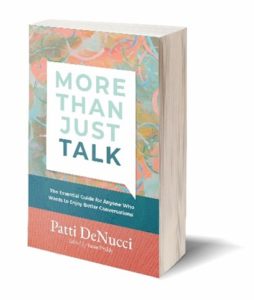I have a confession. I’m a fan of the Sunday New York Times, but it can sometimes take me weeks to read through just one edition. This is particularly true of the thought-provoking essays and opinion pieces in the magazine and Review sections. I take in each piece slowly and intentionally, savoring each one. It just takes awhile to enjoy them all.
The bad news: random sections of the NYT are strewn about my home and office. The good news: these articles often make into my resource and inspiration files and spawn conversations, presentation material, and – yes – blog posts. So behold and read on.
Consider the piece called “Looking Out the Window” in the Letter of Recommendation column back in April. (Yes, I realize it’s now June, thank you.) It’s a first-person account of a writer who works out of a very small office in upstate New York. The view out his window overlooks a rather ordinary parking lot. He begins by comparing and contrasting the windows from which we look out into the world and the windows (screens) from which we look (often obsessively) into the world. 
The window looking out gives us a view of life as it happens (people, cars, dogs, birds and other life forms passing by, doing their thing). The window looking in allows us to view even more (information, opinions, photos, posts, games, apps, you name it) and totally at our will and command. There’s both a miracle and a horror in that. Sometimes we get so obsessed looking in at our technology-driven windows that we forget to view and enjoy what goes on “out there.” (I’m doing this right now as I write. I’m focused on my computer monitor while there is likely a lot of activity going on just out my office window. Once recently I looked up from my monitor and saw a young doe staring in at me! I almost missed that, which would have been tragic.)
So that’s point number one. We often get so hyper-focused on looking in, being “connected” via our screens, that we forget what’s happening around us in real time. (For more thoughts on that take a few moments to watch the TEDx talk I did last spring. )
Point number two: The writer begins looking out his actual window and shares a story of watching what’s going on outside. At first there’s not much happening. Then, a man in a car with a child in the back seat suddenly backs into a chain link fence. Bam! Really slamming into it. The writer immediately begins to make snap judgments about the man: What an irresponsible idiot he is! What a careless driver – and terrible father!
Next, the man gets out of his badly damaged car and assesses the damage. He tries to fix the fence, but is both clumsy and unsuccessful. Now the writer admits he is actually laughing out loud at this amusing “slapstick masterpiece” and the bumbling fool who plays the leading role. The man leaves the scene of the damage, child in tow. The writer slaps on more judgment, labeling the man as “villainous.” He imagines him “sprawled out on his sofa with a case of beer, eating horrible snacks while his child plays with fire and broken glass and battery acid near a malfunctioning electric socket.” (Yes, it seems our imaginations and judgments can get ridiculously specific.)
But suddenly the scene outside the window shifts. The writer confesses “…this is the power of windows: They can contradict your easy assumptions.” The man comes back to the scene with an array of tools and begins, very capably and effectively, fixing the broken fence. What’s more, he adds in some reinforcement material that makes the fence sturdier and straighter than it had been prior to the mishap.
The writer is actually a little stunned. “The odious man was actually a hero. I was the lazy one, with my knee-jerk judgments and distant clichés, my superiority from three stories up…”
He adds, “My ugly assumptions, I realized, were all about myself. I never would have fixed that fence; I would have panicked and run away. My window had woken me up [and taught] me a lesson about humility.”
This everyday experience, aha moment, self-reflection, paradigm shift – whatever you want to call it – hadn’t just changed the writer’s views, it had actually impacted him in a positive way. “It makes me wonder what else that man has improved, and how I can make myself more like him.”
Does this resonate with you? Have you ever made a haughty, self-righteous, knee-jerk judgment about someone from where you stood? Created a story about someone you didn’t even know? Had never even talked to? Of course you have! We all have. We’ve done it in airports, at church, at school, at work, at the gym, at the grocery store.
We all do this because it’s part of being human with brains that adapted over thousands of year to make snap decisions about our environments and the activities and creatures in it. Times have changed and we haven’t quite caught up. Everyday life used to be about survival and tribe and getting through the day alive. Now it’s just too easy to be critical and condemnatory and to find amusement in others’ mistakes or misfortune.
You can see how much we do this by all the hate that is generated in the world and even the instant, emotional, and often not very well thought out comments we say to each other and post on social media. And the truth is, when we are critical of something someone else does, it’s really about us. Projecting. The “You Spot It You Got It Syndrome.” Ouch!
Given the work I do, I saw quickly how this story applies to networking, business socialization, friendships, sales, show business, people-watching, journalism, and many other types of human interaction and communication. What if we all tried to judge less (or at least not so quickly) and cut each other more slack? What if we allowed ourselves the time to observe and see real humans and real stories unfold without assuming the worst? What if, when we are in a social setting, we take a look around the room and look for someone who is standing away from the crowd (maybe looking a little lost), go over to him, begin a conversation, and hear his story? Yes, it’s true, we may initially think this person’s not worth talking to because we’ve created a story about him in our mind. We’ve prejudged. But how will we be surprised?
What else does this story about windows say to you? I want to hear your story about a view from a “window” that shifted your life.
And if you’d like to read the NYT article in its entirety just click here.



Thank you Patti for a great piece with an elegant lesson. Yes, we do all judge way too fast, and from behind our own lenses and filters. I too forget that others behave differently because they see things differently because their whole life has been different than mine. It doesn’t mean they’re “stupid,” “ignorant,” or “wrong,” as so many people label each other today. It just means they are reacting to life from a different vantage point than I am — kinda like the guy peering down from his third-story window. Great blog post!
Thank you, Shelby, for you comment. Appreciate you reading, weighing in. SO much to learn from what and how we view life, each other.
Thank you for this reminder. There is so much more going on under the surface of what we see when we encounter friends and especially strangers. As I get older I feel like I have more empathy and understanding, which is greatly freeing as opposed to holding on to some kind of righteous feeling of judgement about others. Seems like some folks grow into this ability (or maybe always had it?) while others become more hardened in their positions with age. Sometimes when I encounter someone with the rough edges of that hardness, I might create a back story in my mind of tough circumstances that brought them to that place. Maybe that is passing judgement too? Not sure, but it helps me empathize and connect.
What an excellent insight, Amy! I also know people who have softened, mellowed and become less judgmental and more compassionate with age – as well as those who have gone in the other direction, becoming harsh, judgmental, self-righteous, close-minded, etc. Hmmm. Wonder what the factors are there? Why do some go one way, while others to the other? Worth exploring — perhaps another post? Or a discussion at an upcoming Conversation Salon (which I’m way overdue in hosting).
Good thoughts about these issues. Am swimming in them as I type. Think I’ll get off the computer, go meditate, stretch, look out the window and then make that hard choice to work on my memoir.
Thanks, Patti.
Thank you, Jeanne. Hoping all your views are inspiring ones!
Patti,
Your piece reminds me of Byron Katie’s message (which I heard second hand) that judging is what we as humans uniquely excel in. And because of that, we might not want to—or be able to—change that capability.
Bias (or ego) is a given—it gives us personality, imagination, raison d’etre. We are hardwired to be suspicious. Knowing how to anticipate benefits self-preservation. But prejudice (or lack of empathy) can trip us up.
The trick is to remain open. Not being swept away by our projections. My mantra as a young therapist was “Always Only Ask.” Rarely could I anticipate my clients’ answers.
As a speaker and trainer, I spend a lot of time promoting ideas, promoting myself. But posing questions to my audience not only takes the pressure off me for a minute, but also sheds light on great perspectives. At the risk of sounding Buddhist, it puts me in my place.
Great piece, Patti. Worth the wait 😉
Wonderful observations and wisdom here, Hope. You added some interesting points that are definitely worth thinking / asking about. Thank you!
This reminds me of the time I squeezed into the only remaining parking space during lunch at a crowded restaurant. Our meeting lasted longer than usual and when I walked back into the parking lot, mine was the lone car in the row, and parked midway over the painted line, effectively taking up two spaces. All of a sudden, *I* was the jerk.
Thanks Lisa! I think we’ve all been in that situation – knowingly or not. A slight (or massive) change in perspective and the “good” person becomes the “villain” and vice versa.